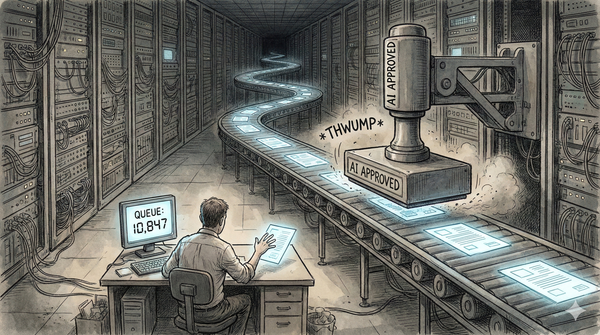WHEN THE ONES WHO WARNED US ARE LEFT BEHIND

How Silicon Valley erased its most prescient critic—and why it’s time to pay the bill
By Jonathan Sandhu
📄 THE ARTICLE
In 2000, Paulina Borsook published Cyberselfish: A Critical Romp Through the Terribly Libertarian Culture of High Tech. The title alone told you what you were in for: a scalpel through Silicon Valley’s self-congratulatory delusions. She called the industry’s bluff on its faux-rebel mythos, its anti-government fetish, its pathological allergy to the social contract. She mapped the libertarian ego trip before it bought a hoodie and launched a surveillance startup.
And no one listened.
The book dropped during the dot-com collapse. It vanished almost instantly. Not because she was wrong—but because she was too right, too early, and too unwilling to flatter the cathedral of code. The world rewarded those who said it all later, softer, or with credentials. And those people got book deals, fellowships, think tank gigs, tenured chairs, and keynote slots.
Paulina got ignored. And now, she’s broke.
Let’s be clear: this isn’t about nostalgia. This is about reparations.
→ Read the full report (Google Doc)
→ Download as PDF (89 KB)
THE CALL: PAY HER
Paulina has a GoFundMe. That’s not symbolic. That’s rent. That’s medical care. That’s survival.
If you’ve ever said “Silicon Valley is libertarian,” you are downstream from her.
If you’ve ever written about AI’s ideology, you are standing on her shoulders.
If you’ve ever nodded along to critiques of platform power, you are quoting her—whether you know it or not.
So here’s your moment:
- Share the link.
- Tag the institutions.
- Demand the credit.
- Or better yet—send the money.
Support Paulina Borsook directly
THE RECORD: WHAT PAULINA SAW
Long before “tech ethics” became a career track, Paulina was calling the Valley what it was: a boy’s club of rich libertarians pretending to be revolutionaries. In Cyberselfish, she named the exact operating system of Silicon Valley:
- Libertarianism dressed as heroism
- Government dependence masked as rugged individualism
- A refusal of philanthropy
- A hatred of regulation even while profiting from state-funded infrastructure
- An ideological belief in tech as salvation
She saw through the AI messiah complex before it had PowerPoints. She mocked Palantir’s hypocrisy before Peter Thiel’s name left Paypal. She dissected the Valley’s immune system to women from inside the room. And when the Valley turned every critique into content, it never turned back for her.
THE RECEIPTS: WHO PROFITED FROM HER SIGNAL
Let’s name names.
Evgeny Morozov. Shoshana Zuboff. Jaron Lanier. Nicholas Carr. Andrew Keen. Each of them built careers—credible ones—on themes Paulina mapped first. Yet few, if any, cite her.
The Verge. Wired. The Atlantic. The New York Times. They run retrospectives, explainers, cautionary AI tales—without Paulina’s name. They repackage her language without citation. They publish voices who arrived later but carried the same thesis.
Universities. Think tanks. Ethics institutes. They write about tech libertarianism like no one saw it coming. They cite Barbrook and Cameron. But not the woman who lived it, dissected it, and published it in real time.
This isn’t about theft. It’s about erasure as policy. The truth is: Paulina Borsook’s signal was clean. The system just didn’t want to hear it.
And now it quotes her without knowing.
THE COST: WHAT SILENCE CREATED
While others spoke on stages, Paulina was trying to afford health care.
While others debated digital rights, Paulina was getting told her essays were “too sharp” to teach.
While others minted reputations on platform ethics, Paulina watched her work—exact lines—circulate without attribution.
Now she’s unsure where she’ll be living next month.
We are long past the time for footnotes. This is a moral debt.
🎧 LISTEN
She saw it first. She said it loud. And then they buried her.
Paulina Borsook dissected Silicon Valley’s libertarian delusions two decades before the techlash. Her book Cyberselfish exposed the hypocrisy, the ego, the erasure—and then she was erased too.
This episode unpacks who stole her signal, who profited from her silence, and why it’s time to pay her back. Not as charity. As reparations.
A strike, not a tribute.
NotebookLM Discussion
💬 Interactive Companion on NotebookLM →
Use the chat to:
- Explore how Borsook’s language and framing were absorbed into modern critique without credit
- Compare Cyberselfish to works by Zuboff, Morozov, Keen, or Lanier
- Ask where specific lines, ideas, or frames show up in mainstream discourse
- Interrogate the silence—who gets remembered, who gets erased, and why
- Find direct quotes and evidence from the record to demand reparation
POSTSCRIPT: THIS WAS NEVER JUST A BOOK
Cyberselfish wasn’t an artifact. It was a warning.
Paulina wasn’t just first. She was specific, documented, and surgically clear.
The world caught up. But it didn’t turn around.
It’s time.
Give her back her name.
Give her back her place.
And give her the goddamn money.




